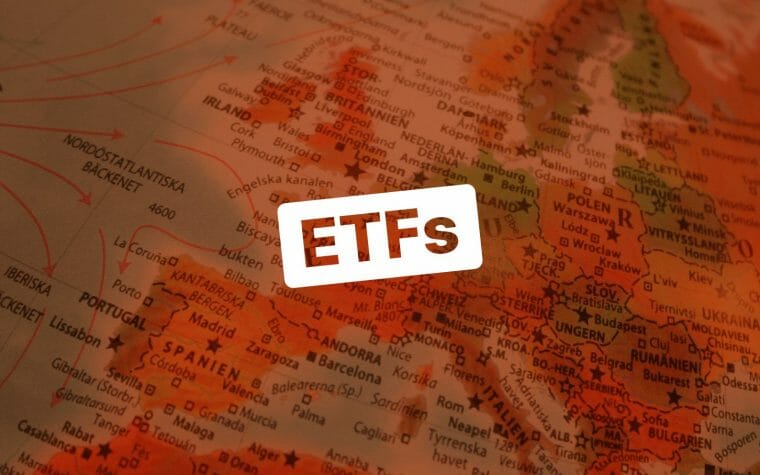Travel Stocks for 2022 + 1 Low Risk ETF

Now that it’s December, it’s time to look ahead to next year and some travel stocks for 2022. Though no one can predict what will happen (witness the Omicron variant that South Africa announced last week), it’s fair to say that the worst of Covid is probably behind us. Winter is increasing the number of cases, but vaccination rates are high in Canada and other industrialized countries where now children under 12 are getting jabbed.
Meanwhile, Pfizer‘s and Moderna‘s anti-viral pills will likely get approved this winter and will be crucial in combating this pandemic. There’s room for optimism along the bumpy ride ahead. The following are stocks to buy for the long term, certainly to take advantage of any Omicron dips like the one we saw on Black Friday last week.

Booking Holdings Inc. (BKNG-Q)
One theme we’ll see in 2022 is revenge travel. We’re talking international, cross-border travel which has seen a partial return this year but was limited by the Delta variant. However, revenge travel should gain momentum next year making this one of the best travel stocks for 2022. Among stocks, the world’s biggest travel agency is the place to go. In reality, Booking Holdings consists of several online travel companies like a Russian doll: Priceline, Kayak, CheapFlights, OpenTable, RentalCars and others. (In fact, Booking Holdings used to be called the Priceline Group.)
You can complain that this is disingenuous, that the consumer is not enjoying as much competition when they book a trip as it appears—and you’d be right. From an investor’s point of view, though, Booking Holdings dominates because it enjoys several revenue streams with around 93% from commissions and 7% from ads. Because 89% of BKNG stock’s gross profits are traditionally earned outside the U.S., buying BKNG is a bet on international travel returning in 2022.
Though BKNG stock pays no dividend and trades at 244x earnings, the stock boasts an operating margin of 13.6% and a profit margin of 4.06% while its ROE stands at 7.15%. That beats its rival Expedia at -9.39%, -10.65% and -59.16%. Further, stock performance has been encouraging with BKNG beating earnings in the last three of four quarters. Of course, any stock in the travel sector will get hammered on any Omicron news. On Black Friday, shares tanked by 7.2%. Again, consider those buying opportunities.

Lyft (LYFT-Q)
The ride-sharing stocks, including this and Uber, remain a work-in-progress, interrupted by Covid. Driver shortages, and a California ruling last August that drivers are employees and not freelancers, have and will drive up costs to consumers. Also last August, NPR reported that ride-sharing fares jumped as much as 79% higher in some American cities (50% typicall) and waiting times were longer than pre-pandemic. No surprise if you tried hailing a ride in the past year. However, there’s an entire generation weaned on ride-sharing and won’t touch a cab. I don’t blame them, given terrible service and costly fares.
On Nov. 2, Lyft announced that it had 18.9 million active riders in the last quarter, compared to 12.5 million a year ago, and 22.9 million at the end of 2019. Ridership is bouncing back, taking passengers to reopened restaurants, bars, concerts, sporting events and shops. Expect this trend to continue, despite Omicron headlines.
That said, ride-sharing remains unprofitable. Lyft stock’s PE is -11.3x and its profit margin stands at -43.05% despite gross margins of almost 33%. Also, Lyft—like so many tech stocks—doesn’t pay a dividend. However, Lyft has navigated the bumpy road of recovery well. It has beaten its last four quarters by wide margins, and Wall Street expects 68% upside in the stock to $71.38. Consider this a spec buy, but a risk worth taking if you are patient in 2022.

Vanguard FTSE Cdn High Div Yd. (VDY-T)
For those with a lower appetite for risk, a safe fallback is the VDY, an ETF which tracks Canada’s high-dividend payers, including Royal Bank, TD, Enbridge, TC Energy and BCE. About 58% of VDY stock’s holdings are financials, which have enjoyed a super 2021 after lagging in 2020 and should carry that momentum forward now that the big banks can raise dividends and buyback shares.
Another 23.7% of VDY stock is based in oil stocks, a volatile group but should enjoy continued high oil prices this winter. Steady, boring telecoms and utilities make up another 14% of this ETF. Nothing sexy here, but every portfolio needs a grey, quiet holding to anchor the volatility of the others.
Also, VDY stock charges a low MER of 0.21% and pays a 12-month 3.67% dividend yield paid monthly.



